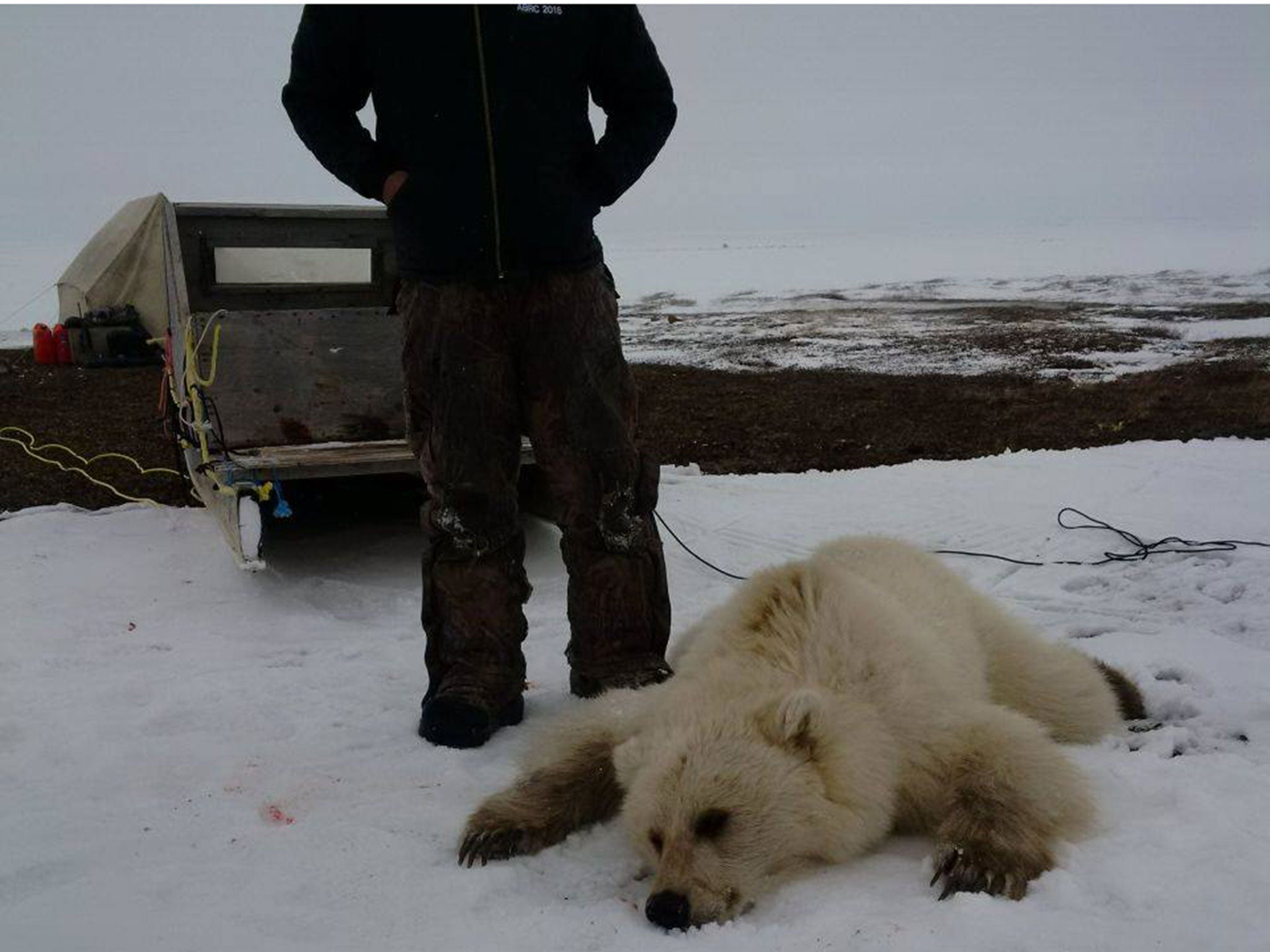Polar bears and grizzly bears are starting to mate more often - and a hunter just shot one dead
'I hate to say it, but from a genetic perspective, it’s quite likely grizzly bears will eat polar bears up, genetically'

Your support helps us to tell the story
From reproductive rights to climate change to Big Tech, The Independent is on the ground when the story is developing. Whether it's investigating the financials of Elon Musk's pro-Trump PAC or producing our latest documentary, 'The A Word', which shines a light on the American women fighting for reproductive rights, we know how important it is to parse out the facts from the messaging.
At such a critical moment in US history, we need reporters on the ground. Your donation allows us to keep sending journalists to speak to both sides of the story.
The Independent is trusted by Americans across the entire political spectrum. And unlike many other quality news outlets, we choose not to lock Americans out of our reporting and analysis with paywalls. We believe quality journalism should be available to everyone, paid for by those who can afford it.
Your support makes all the difference.A hunter has shot and killed a rare 'grolar bear' in Canada as researchers warn the existence of the hybrid could ultimately spell the end of the polar bear, the world's largest land carnivore.
Didji Ishalook, 25, told the Toronto Star he thought he had spotted a polar bear or an Arctic fox near Nunavut on Hudson Bay. But DNA testing seems likely to show that Mr Ishalook actually shot a rare cross between the two species, who normally live in very different climates.
Polar and grizzly bears are increasingly mating with each other as the warming Arctic allows the two species to come into contact more often. A number of hybrids have been DNA tested in recent years.
However researchers have warned the existence of hybrid pizzlies or grolars could lead to the death of the polar bear species, according to a report in The Washington Post.
Normally grizzlies are put off going into polar bear territory because they struggle in deep snow.
But higher temperatures mean they have been extending their range in recent years with roaming males coming into contact with female polar bears.
Andrew Derocher, a biology professor at Alberta University, said it should not be a “big surprise” that grizzlies are heading north because “everything is”, the Post reported.
While first generation hybrid bears are equally grizzly and polar bear, further breeding with grizzlies will gradually reduce the level of polar genes.
“I hate to say it, but from a genetic perspective, it’s quite likely grizzly bears will eat polar bears up, genetically,” Professor Deocher said.
“What we’re starting to see in the Canadian Arctic is three-fourth grizzlies.
“How do they act? Probably more like grizzly bears, living on land.
“As climate change continues, terrestrial habitat is going to increase, and the likelihood is the habitat for grizzlies, a terrestrial bear, is going to get better.”
He said he believed that this process – coupled with the disappearance of prime polar bear habitat is the sea ice melts – meant that “we’ll start to see polar bears on their way out”.
Temperatures in the Arctic have been rising dramatically in recent years, far ahead of the global average. The level of sea ice this year has been tracking well below the historic average.
Polar bears are also affected by pollution in the sea such as PCBs – chemicals used in paint, pesticides and as a flame retardant among other uses – which concentrate in animals at the top of the food chain. These have been linked to cancer, brain damage and even causing the polar bear’s penis bone to snap off.
And Professor Derochar said while grizzlies might be winning the evolutionary race with polar bears at the moment, climate change could eventually bring about their demise too.
“We won’t have grizzlies or polar bears in this area,” he said. “If you roll the clock ahead another number of decades or a century, quite clearly it’s going to be no bears eventually.”
Join our commenting forum
Join thought-provoking conversations, follow other Independent readers and see their replies
Comments